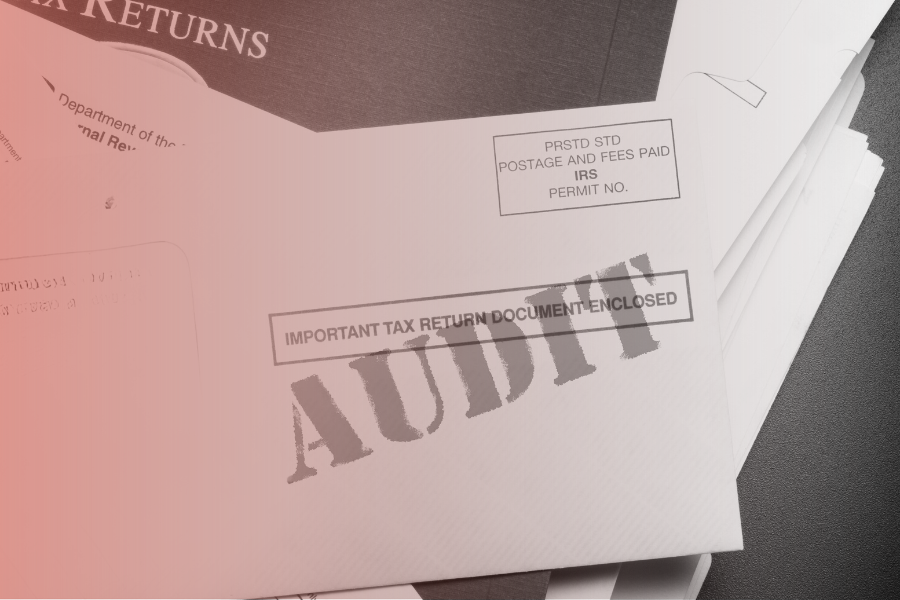Just How Reporting Foreign Inheritance to IRS Works: Trick Insights and Guidelines for Tax Reporting
Maneuvering the intricacies of reporting foreign inheritance to the IRS can be tough. There specify thresholds and types that individuals have to comprehend to ensure conformity. Inheritances going beyond $100,000 from non-resident aliens call for particular focus. Failing to stick to these standards might result in penalties. Recognizing the nuances of tax effects and necessary documentation is crucial. The adhering to areas will outline crucial insights and guidelines for efficient tax obligation reporting.
Recognizing Foreign Inheritance and Its Tax Obligation Effects
When people receive an inheritance from abroad, it is essential for them to recognize the associated tax obligation ramifications. In the USA, acquired possessions are normally not subject to income tax, but the estate from which the inheritance comes may have particular tax obligation responsibilities. International inheritances can make complex matters, as various nations have varying policies concerning estate taxes. People have to know that while they may not owe tax obligations on the inheritance itself, they might be accountable for reporting the worth of the international asset to the Irs (IRS) Furthermore, money exchange rates and valuation approaches can impact the reported well worth of the inheritance. Comprehending these facets is critical to prevent unexpected tax obligation liabilities. Looking for assistance from a tax specialist seasoned in international inheritance legislations can give clearness and guarantee conformity with both united state and international tax demands.

Reporting Requirements for Inherited Foreign Possessions
The reporting requirements for inherited international possessions include specific limits and limits that taxpayers need to comprehend. Compliance with IRS guidelines demands the suitable tax return and understanding of potential charges for failure to report. Understanding these components is important for people getting foreign inheritances to avoid legal issues.
Coverage Thresholds and Limits
While passing through the complexities of acquired international assets, recognizing the reporting limitations and thresholds set by the IRS is essential for conformity. The IRS mandates that united state taxpayers report international inheritances going beyond $100,000 from non-resident aliens or foreign estates. This limitation applies to the total value of the inheritance, encompassing all possessions obtained, such as money, realty, and investments. Additionally, any type of international economic accounts amounting to over $10,000 need to be reported on the Foreign Checking Account Report (FBAR) Failure to follow these thresholds can lead to substantial charges. It is necessary for taxpayers to properly analyze the value of inherited international properties to guarantee compliant and timely reporting to the IRS
Tax Obligation Forms Review

Charges for Non-Compliance
Failing to abide by reporting needs for inherited foreign assets can result in considerable penalties for U.S. taxpayers. The IRS applies strict policies pertaining to the disclosure of foreign inheritances, and failures can cause fines that are often significant. Taxpayers might deal with a fine of up to $10,000 for stopping working to submit Kind 3520, which reports foreign presents and inheritances exceeding $100,000. Additionally, proceeded non-compliance can intensify fines, possibly rising to 35% of the worth of the acquired property. Moreover, failure to report can likewise trigger much more extreme consequences, consisting of criminal costs for willful overlook. Taxpayers must stay cautious to prevent these effects by making certain timely and precise coverage of foreign inheritances.
Secret Kinds and Paperwork Needed
When an individual receives an international inheritance, it is vital to recognize the crucial types and documents needed for compliance with IRS policies. The key type needed is the IRS Form 3520, which have to be filed to report the receipt of the foreign inheritance. This kind gives detailed info about the inheritance, consisting of the identification of the foreign decedent and the value of the inherited assets.
Furthermore, if the inherited property includes foreign savings account or various other economic assets, the person may require to file the Foreign official source Checking account Report (FBAR), FinCEN Kind 114, if the total worth goes beyond $10,000. Appropriate documentation, such as the will or estate papers from the foreign jurisdiction, need to likewise be collected to corroborate the inheritance claim. Maintaining complete documents of all transactions and communications connected to the inheritance is important for precise coverage and conformity with IRS requirements.
Tax Treaties and Their Influence On Inheritance Tax

Understanding the ramifications of tax treaties is vital for individuals receiving international inheritances, as these agreements can substantially affect the tax commitments related to inherited properties. Form 3520 foreign gift. Tax obligation treaties between countries commonly supply particular guidelines on how inheritances are taxed, which can result in minimized tax liabilities or exemptions. A treaty may specify that particular types of inheritances are not subject to tax in the recipient's country, or it might enable for debts against tax obligations paid abroad.
Individuals should acquaint themselves with the details stipulations of pertinent treaties, as they can differ substantially. This expertise aids guarantee conformity with tax policies while making the most of prospective benefits. Furthermore, understanding exactly how treaties communicate with residential legislations is essential to accurately report foreign inheritances to the IRS. Consulting with a tax specialist well-versed in worldwide tax legislation may be recommended to browse these intricate laws properly.
Usual Blunders to Avoid When Reporting Inheritance
Although many individuals think they can conveniently browse the intricacies of reporting foreign inheritances, they often overlook essential information that can cause substantial mistakes. One common blunder is falling short to report the inheritance in the correct tax year, which can result in fines. Furthermore, some individuals disregard to transform international properties into U.S. bucks at the suitable exchange rate, consequently misrepresenting their value. One more regular oversight entails misinterpreting the reporting limits; individuals might think they do not require to report if the inheritance is below a certain quantity, which is incorrect. Moreover, misclassifying the type of inheritance-- such as treating a gift as an inheritance-- can make complex reporting responsibilities. People commonly stop working to maintain comprehensive paperwork, which is vital for staying clear of and validating claims audits. Awareness of these mistakes can greatly enhance conformity and minimize the danger of economic effects.
Looking For Professional Support for Complicated Circumstances
Steering the intricacies of reporting international inheritances can be daunting, specifically for those with complex monetary circumstances. People dealing with concerns such as multiple international assets, varying tax ramifications across jurisdictions, or elaborate household dynamics may you could look here gain from expert assistance. Tax obligation specialists focusing on global tax obligation legislation can offer important understandings into the nuances of IRS guidelines, making certain conformity while reducing potential responsibilities.
Engaging a state-licensed accountant (CPA) or tax lawyer with experience in foreign inheritance can assist clear up go to my site coverage requirements, determine appropriate exceptions, and strategize ideal tax obligation techniques. They can help in completing required kinds, such as Form 3520, and handling any type of additional disclosure requirements.
Ultimately, seeking expert assistance can alleviate tension and enhance understanding, permitting people to concentrate on the emotional aspects of inheritance instead than ending up being bewildered by tax complexities. This positive method can lead to more favorable results in the future.
Frequently Asked Questions
Do I Required to Record Foreign Inheritance if I'm Not an U.S. Citizen?
Non-U.S. citizens usually do not require to report foreign inheritances to the IRS unless they have details links to U.S. tax legislations. It's advisable to speak with a tax obligation professional to clear up specific conditions.
Exist Penalties for Failing to Report Foreign Inheritance?
Yes, there are penalties for failing to report foreign inheritance. People may encounter significant penalties, and the IRS could impose additional repercussions for non-compliance, potentially impacting future tax obligation filings and monetary condition.
Can I Deduct Expenses Associated to Managing Inherited Foreign Assets?
Expenditures connected to handling inherited foreign properties are generally not deductible for tax obligation functions. Nonetheless, people ought to get in touch with a tax expert for guidance tailored to their certain scenarios and potential exemptions that might use.
Exactly How Does Foreign Money Affect the Value of My Inheritance Report?
International currency variations can significantly influence the reported value of an inheritance. When transforming to united state bucks, the exchange price at the time of inheritance and reporting determines the final reported worth for tax obligation purposes
What Occurs if My Foreign Inheritance Is Kept In a Trust fund?
If an international inheritance is kept in a trust, it might complicate coverage needs. The count on's structure and tax obligation effects have to be examined, as recipients could encounter differing tax responsibilities based upon territory and depend on kind.
The Internal revenue service requireds that U.S. taxpayers report foreign inheritances surpassing $100,000 from non-resident aliens or foreign estates. Additionally, any international financial accounts totaling over $10,000 need to be reported on the Foreign Bank Account Record (FBAR) People acquiring international properties have to normally report these on Kind 8938 (Declaration of Specified Foreign Financial Properties), if the complete worth surpasses specific thresholds. Depending on the nature of the inheritance, other forms such as Type 3520 (Yearly Return To Record Transactions With Foreign Trusts and Invoice of Specific International Presents) might additionally be needed. In addition, if the acquired residential or commercial property consists of foreign bank accounts or various other financial properties, the person may need to submit the Foreign Bank Account Report (FBAR), FinCEN Type 114, if the complete value exceeds $10,000.